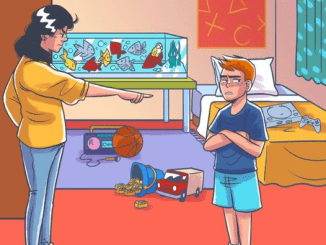Have you ever sent a smiley emoji when your heart felt like breaking? If so, you’re not alone. In today’s hyper-connected world, where feelings are compressed into tiny bubbles of text and emojis, it’s easier than ever to fake a smile — especially in the aftermath of a breakup.
The image we’re exploring today captures a WhatsApp conversation filled with so-called “happy” emojis. But behind the cheerful facade is something raw, something deeply human: emotional pain hidden behind digital politeness. Let’s unpack what’s really going on here — and why it hits home for so many of us.
💔 The Conversation That Says It All

The chat starts innocently enough.
Sounds like two people checking in. But look closer — the repetition of “fine,” the emoji smiles that feel hollow, the deliberate use of “yes I’m happy without you 😊.” That’s not peace. That’s pain dressed up in politeness.
🎭 The Emoji Illusion: Why We Fake Emotions in Texts
We use emojis to communicate feelings, right? But sometimes, they become our emotional armor. A 🙂 doesn’t always mean happiness. It can mean “I’m trying not to cry.” It can mean “I’m pretending I’ve moved on.”
Why do we do this? Simple. Vulnerability is hard — and texting makes it even harder. We’d rather slap on a smiley face than admit we’re hurting. Especially when the person on the other end once mattered deeply.
📱 Emotional Disconnect in a Connected World
Technology connects us, but it also distances us. You can have a whole conversation without ever revealing how you actually feel. And sometimes, you do it to protect yourself. Sometimes, you do it to protect them. Either way, the truth gets buried under green message bubbles and timestamped lies.
Video : 7 Stages After A Break Up
When someone asks, “Are you happy without me?” that question already carries pain. It’s a plea in disguise. It’s not really about happiness — it’s about closure, maybe even regret.
😞 Mutual Heartache Disguised as Small Talk
Let’s be real. Neither of them is truly “fine.” That’s why they’re texting. If they were truly over it, there’d be no conversation.
The reply “Yes 🙂 Happy” is probably the saddest line of all. The smiley isn’t cheerful — it’s forced. The word “Happy” doesn’t land like it should. It’s cold, detached, final.
This kind of texting dance — where both people pretend they’re okay — is emotionally exhausting. It’s like two actors reading lines in a play they never auditioned for.
🧠 Psychological Impact: The Weight of Words Left Unsaid
What makes this image powerful isn’t just what’s said — it’s what’s not said.
No one says “I miss you.”
No one says “This hurts.”
No one says “I still think about us.”
But you feel all of that between the lines. That’s the weight of emotional suppression. It builds up over time and can leave scars — even in conversations that last just a few minutes.
Pretending to be okay doesn’t make you strong. Sometimes it just makes you lonelier.
📝 The Message Behind the Message: Why We Should Read Between the Lines
This WhatsApp exchange is a perfect example of how humans avoid emotional honesty, especially in moments of emotional collapse. Maybe it’s pride. Maybe it’s fear of rejection. Maybe it’s both.
Video : Break-Ups Don’t Have to Leave You Broken
But what would’ve happened if they’d just said the truth?
What if one of them had typed: “No, I’m not okay. I miss you.”
Would it change anything? Maybe not. But it would be real. And sometimes, being real is the closure we need more than a fake smile.
💬 The Healing Power of Honesty
Let’s stop glamorizing emotional distance. Being honest isn’t weak — it’s brave. If someone reaches out, and you still carry pain or love or confusion, it’s okay to say it. Silence and emojis won’t mend a broken heart. But the truth? That’s where healing starts.
If you find yourself in a similar exchange — where the conversation feels more like a performance than a connection — take a breath. Ask yourself: what do I really want to say? Then say it.
👋 Final Thoughts: Behind Every 🙂 Lies a Story
That single image says more than most novels. It’s a digital mirror, reflecting a universal truth: sometimes, the hardest thing to say is “I’m not okay.”
So the next time you feel like putting on that fake smile, ask yourself — are you trying to protect your heart or just postponing the pain?
Because honesty may hurt, but pretending to be fine can hurt a whole lot more.


